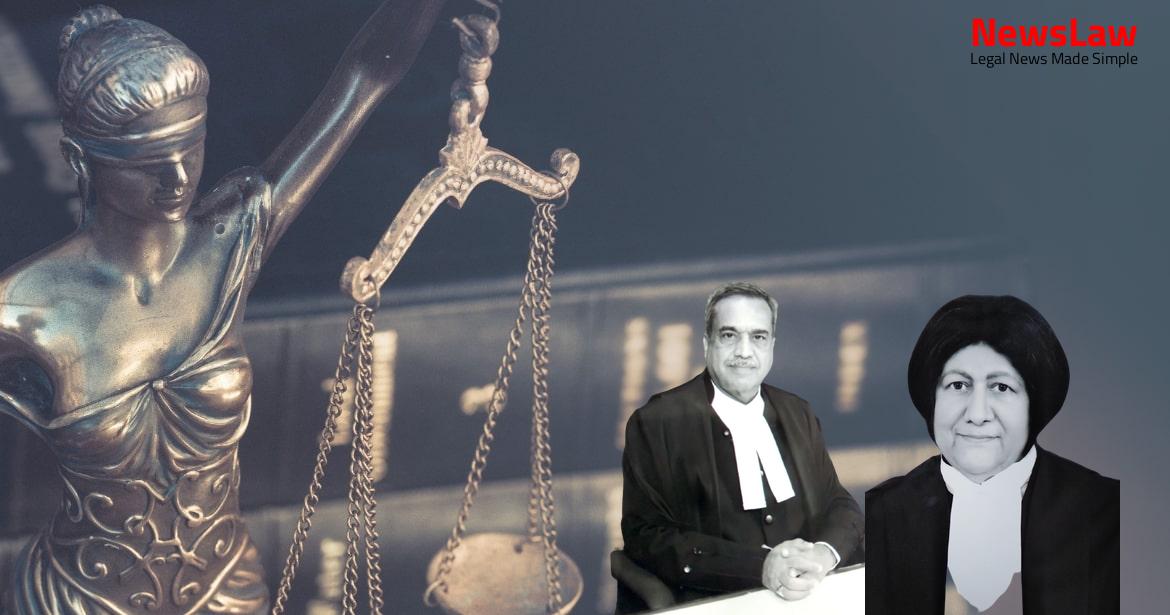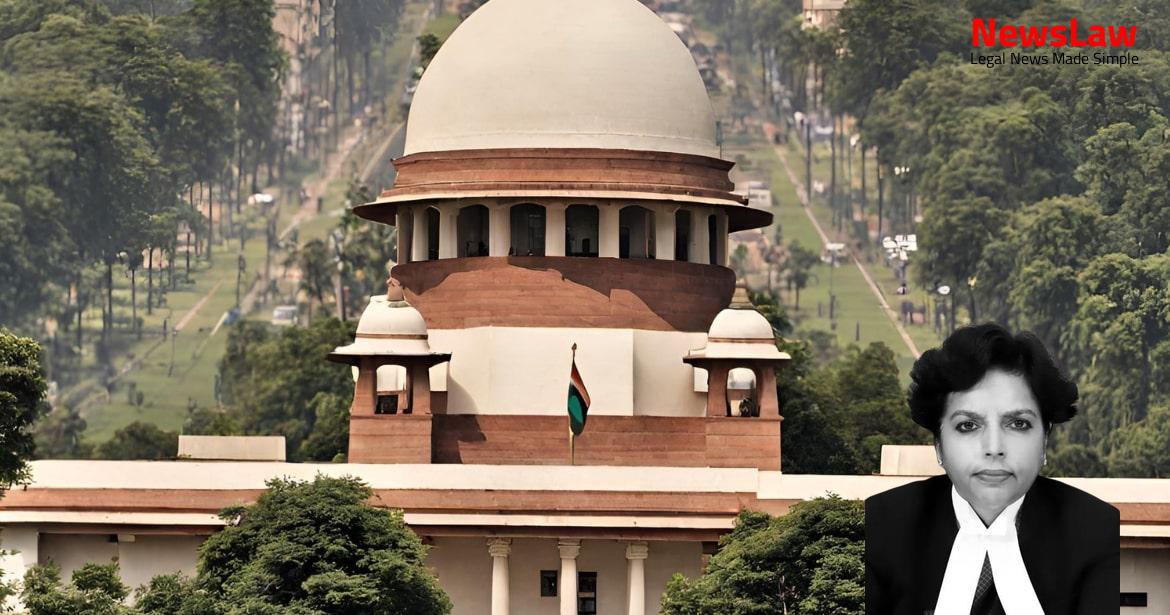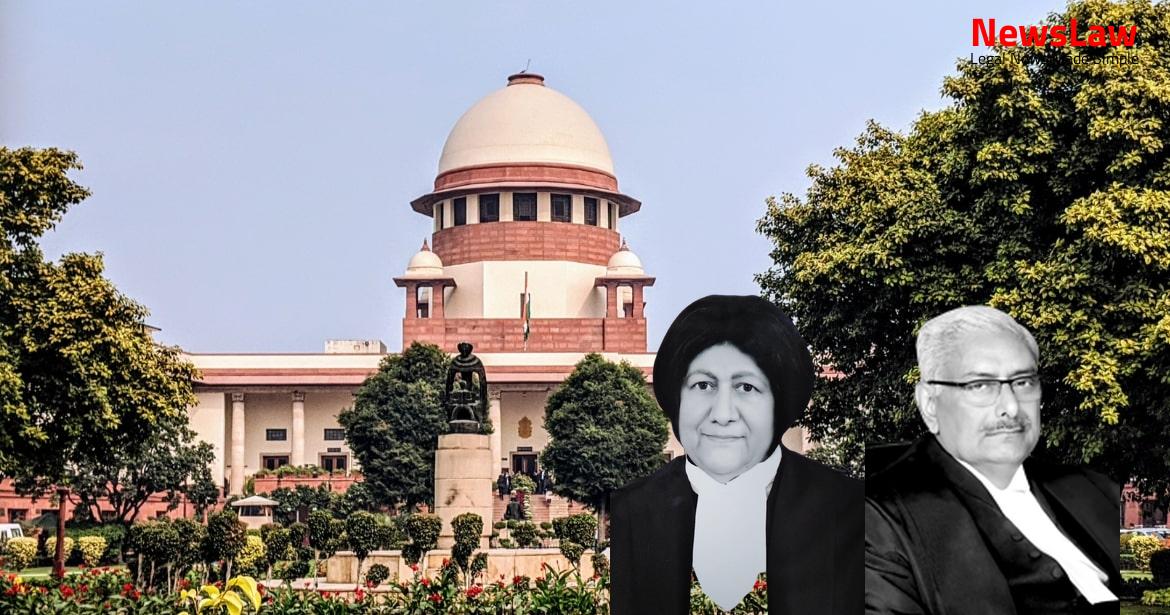In a significant legal development, the Supreme Court of India has ruled in the appeal of Husband against Wife, granting the dissolution of their marriage. The case, focusing on irretrievable breakdown, highlights the challenges faced in marriages with enduring separations and failed reconciliations. This judgment marks a pivotal moment in family law, emphasizing the court’s authority under Article 142 of the Constitution of India. The decision reflects the evolving legal landscape concerning marital disputes and the recognition of irreparable relationships.
Facts
- Appellant-husband sought a decree of divorce on the ground of irretrievable breakdown of marriage.
- High Court dismissed the appeal seeking divorce.
- High Court confirmed the Family Court’s decision of refusing to pass a divorce decree.
- Family Court also refused divorce based on the irretrievable breakdown of marriage claim.
- Appellant-husband appealed to the High Court against the Family Court’s decision.
- Family Court dismissed the divorce petition citing lack of proof of cruelty by the respondent-wife.
- Marriage between the appellant-husband and the respondent-wife took place on 09.05.1993.
- Appellant-husband alleged cruelty by the respondent-wife and mentioned her stays at her parental house until 1997.
- Divorce petition under Section 13(1)(ia) and (ib) of the Hindu Marriage Act, 1955 was filed by the appellant-husband in 1999.
- A male child was born to the couple on 29.08.1995.
- Appellant-husband filed O.P. No 157 of 1999 seeking a decree of divorce against the respondent-wife.
Also Read: Address Update Requirement: Legal Implications for Corporate Entities
Arguments
- The appellant-husband’s counsel argues that the findings of cruelty by both lower courts should be overturned.
- It is alternatively argued that the appellant-husband and the respondent-wife have been living separately for 22 years, making reconciliation impossible.
- Due to the irretrievable breakdown of the marriage, it is urged that the marriage should be dissolved under Article 142 of the Indian Constitution in the interest of justice.
- Counsel for the appellant-husband cites various court decisions supporting the dissolution of marriage on the grounds of irretrievable breakdown.
- The appellant-husband is willing to provide a reasonable permanent alimony to the respondent-wife if the marriage is dissolved.
- Decree of divorce cannot be granted on the ground of irretrievable breakdown of marriage without the consent of both parties.
- The respondent’s advocate vehemently opposes the appeal, arguing that the marriage should not be dissolved in this case.
- The advocate references several court decisions to support the argument against dissolution of the marriage.
- It is requested to dismiss the present appeal based on the aforementioned arguments and case laws.
Also Read: Supreme Court Judgement on Maharashtra Prevention of Dangerous Activities Act, 1981
Analysis
- The appellant-husband and the respondent-wife have been residing separately for the past 22 years.
- The separation between the husband and wife is not in dispute.
- This fact is crucial for the analysis of the case.
- The marriage between the appellant-husband and the respondent-wife has been irretrievably broken down as they have been living separately for more than 22 years.
- Efforts to continue the marriage have failed, and there is no possibility of re-union due to strained relations.
- Courts can dissolve a marriage as irretrievably broken down when all efforts to save it have been made and there is no chance of survival.
- Marriage becomes a fiction supported by a legal tie when irretrievable breakdown occurs.
- In the case of Naveen Kohli, it was observed that once a marriage has broken down beyond repair, it would be harmful not to acknowledge that fact.
- Long periods of continuous separation indicate that the matrimonial bond is beyond repair.
- The parties have been living separately for more than 10 years and have initiated numerous legal proceedings against each other, indicating the irreparable nature of their marriage.
- The court suggests compensating the wife through lump sum permanent alimony.
- The court decides to dissolve the marriage between the parties.
- The court uses the powers under Article 142 of the Constitution of India to make this decision.
Also Read: Illegal Contract Termination: High Court Upholds Arbitral Award
Decision
- Marriage between the appellant-husband and the respondent-wife is ordered to be dissolved.
- Dissolution of marriage is allowed as per the application for divorce filed by the appellant-husband.
- Appellant-husband agrees to pay a lump sum permanent alimony of Rs.20,00,000/- to the respondent-wife within eight weeks.
- Appellant-husband to continue paying maintenance to respondent-wife until the permanent alimony is paid.
- No costs are imposed on either party.
Case Title: R.SRINIVAS KUMAR Vs. R.SHAMETHA
Case Number: C.A. No.-004696-004696 / 2013



